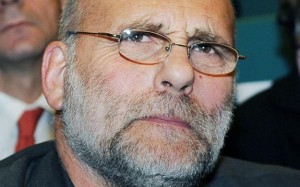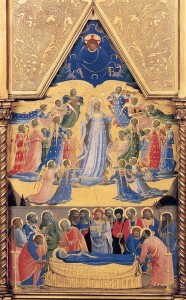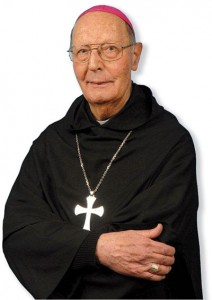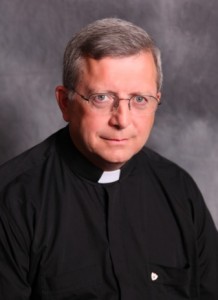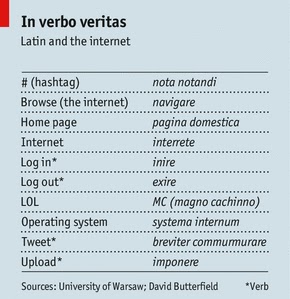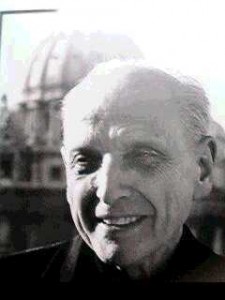 Today is the 45th anniversary of the Servant of God Father Pedro Arrupe’s letter to the Society of Jesus on the Servant of God Pope Paul VI’s teaching, Humanae vitae. This is the first time I’ve seen this letter and it portrays the Jesuit’s in a different light, one that is unexpected and consistent with what we know to be the mind of Saint Ignatius and the Church. Without a doubt, Father Arrupe wrote a beautiful letter, too bad it was buried for so long.
Today is the 45th anniversary of the Servant of God Father Pedro Arrupe’s letter to the Society of Jesus on the Servant of God Pope Paul VI’s teaching, Humanae vitae. This is the first time I’ve seen this letter and it portrays the Jesuit’s in a different light, one that is unexpected and consistent with what we know to be the mind of Saint Ignatius and the Church. Without a doubt, Father Arrupe wrote a beautiful letter, too bad it was buried for so long.
Epistula A.R.P.N. Generalis ad omnem Societatem occasione Litterarum Encyclicarum “Humanae vitae.” Acta Romana Societatis Iesu. Vol. XV, Fasc. II, anno 1968
Dear Fathers and Brothers, Pax Christi
We are all aware of the response given to the most recent encyclical of Pope Paul VI, Humanae vitae, about the problems raised by the question of contraception. While manycompletely accept the teaching of the encyclical, a number of the clergy, religious and laity violently reject it in a way that no one in the Society can think of sharing. Yet, because the opposition to the encyclical has become widespread in some places, I wish to delay no longer before calling to mind once more our duty as Jesuits. With regard to the successor of Peter, the only response for us is an attitude of obedience which is at once loving, firm, open and truly creative. I do not say that this is necessarily painless and easy.
In fact, on various grounds and because of particular competence, some of us may experience certain reservations and difficulties. A sincere desire to be truly loyal does not rule out problems, as the Pope himself says. A teaching such as the one he presents merits assent not simply because of the reasons he offers, but also, and above all, because of the charism which enables him to present it. Guided by the authentic word of the Pope- a word that need not be infallible to be highly respected – every Jesuit owes it to himself, by reason of his vocation, to do everything possible to penetrate, and to help others penetrate, into the thought which may not have been his own previously; however, as he goes beyond the evidence available to him personally, he finds or will find a solid foundation for it.
To obey, therefore, is not to stop thinking, to parrot the encyclical word for word in a servile manner. On the contrary, it is to commit oneself to study it as profoundly as possible so as to discover for one self and to show others the meaning of an intervention judged necessary by the Holy Father.
Once we have correctly grasped the meaning of the encyclical, let us not remain passive. Let us not be afraid to rectify our teaching, if need be, while at the same time explaining why we are doing so. Let us develop our teaching as profoundly as possible rather than restrict it. Let is strive for a better pastoral theology of the family and of the young people. We must not forget that our present world, for all its amazing scientific conquests, is sadly lacking a true sense of God and is in danger of deceiving itself completely. We must see what is demanded of us as Jesuits. Let us collaborate with others in centers of the basic research on man, where the specific data of Christian revelation can be brought together with the genuine achievements of the human sciences and thus achieve the happy results that can be legitimately anticipated. In all this work of sympathy, intelligence, and love, let us always be enlightened by the Gospel and by the living tradition of the Church. Let us never abandon the papal teaching we have just received. Rather, we must continually seek to integrate it into an ever-widening anthropology. The present crisis makes clear this urgent need.
In so fulfilling our mission as Jesuits, which is to make the thought of the Church understood and loved, we can help the laity, who themselves have much to bring to the problems touched on in the encyclical, and who rely on us for a deep understanding of their points of view. [“atque nostram expectant cooperationem pro intimiore penetratione magisterii Pauli VI.”]
You understand well that it is the spirit of the Constitutions which inspires me as I write these words. For, as the Constitutions tell us in substance, each member of the Society must remember that his personal manner of serving God is realized through a faithful obedience to the Roman pontiff. That is why I am certain that today too, the Society is able to show itself worthy of four centuries of complete fidelity to the Holy See.
It certainly cannot be said that the Second Vatican Council has changed all this. The Council itself speaks formally of “this religious submission of will and of mind,” which “must be shown in a special way to the authentic teaching authority of the Roman pontiff, even when he is not speaking ex cathedra. That is, it must be shown in such a way that his supreme magisterium is acknowledged with reverence and the judgments made by him sincerely adhered to according to his manifest mind and will” (Lumen Gentium, n.25).
Nor can it be said that the Pope was speaking of matters that do not involve our faith, since the essence of his teaching directly concerns the human and divine dignity of man and of love. In the enormous crisis of growth which envelops the whole world, the Pope himself has been what the entire Church must be, and Vatican II affirmed, “both a sign and a safeguard of the transcendence of the human person” (Gaudium et Spes, n.76). For this reason the service we as Jesuits owe to the Holy Father and to the Church is at the same time a service we owe to humanity itself.
In my awareness of our obvious duty as Jesuits I could say much more, particularly at this time which seems to me crucial for the Church. Difficult times are times made for the Society, not to seek its own glory, but to show its fidelity. This is why I am certain that all of you will understand my words. As for those for whom the encyclical presents personal problems of conscience, I wish to assure them that for that very reason I am keeping them in my affection and prayers.
May St. Ignatius help each of us to become, with the aid of the Holy Spirit, more Ignatian than ever. May he obtain for us the understanding that our legitimate desire to be totally present to this world demands of us an ever-increasing fidelity in the service of the Church, the Spouse of Christ and the Mother of all mankind.
I commend myself to the prayers of all of you.
Rome, 15 August 1968.
Most devotedly in Christ,
Pedro Arrupe
Praep. Gen. Soc. Iesu.
[This English translation was transcribed by Fr. Joseph Carola, S.J., from the article “Father Arrupe: ‘Think with the church’,” which appeared in the National Catholic Reporter, September 18th, 1968, p. 7]
